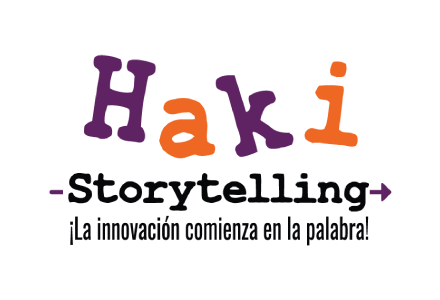Existen muchas personas con un profundo conocimiento en el campo del Storytelling, que le han dedicado gran parte de sus vidas a esa profesión, una de ellas es David Hutchens.
Hutchens es un autor renombrado, creador de soluciones de aprendizaje y comunicación para las marcas más influyentes en el mundo: Coca-Cola company, IBM, Walmart, GE, entre otras. Es el creador de la serie de libros fabulas de aprendizaje, que incluye títulos como “Outlearning the Wolves”. Su nuevo libro es “Circle of the 9 muses: A Storytelling Field Guide for innovators and Meaning Makers” (Wiley & Sons, 2015).
Es un creador reconocido a nivel nacional de productos innovadores de aprendizaje. Su trabajo ha sido reconocido con distinciones como Training & Development’s “Training Product of the Year” award; ASTD’s prestigious “Excellence in Practice” award, Brandon Hall Gold award, y otros más.
Para conocer más acerca de él y su trabajo, pueden visitar su página web:
Contacté a Hutchens unas semanas atrás y le pregunté si le gustaría participar como escritor invitado en el Blog de Haki. Él acepto inmediatamente y la semana pasada me llegó su escrito, donde explica la importancia de nuestro como rol como narradores.
…
There are lots of people with a deep knowledge in the field of storytelling, who have devoted much of their lives to it; one of them is David Hutchens.
Hutchens is a betselling author, and creator of learning and communications solutions for the most influential brands in the world, including the Coca-Cola Company, IBM, Walmart, GE, and many others. He’s the creator of the book series known as the Learning Fables, which include titles such as “Outlearning the Wolves.” His new book is Circle of the 9 Muses: A Storytelling Field Guide for Innovators and Meaning Makers” (Wiley & Sons, 2015)
He’s a nationally recognized developer of innovative learning products; David’s work has been recognized with distinctions such as Training & Development’s “Training Product of the Year” award; ASTD’s prestigious “Excellence in Practice” award, Brandon Hall Gold award, and more.
To learn more about him and his work, you can visit his webpage.
I contacted Hutchens a pair of weeks ago and asked him if he would like to participate as a guest writer in the Haki Blog. He accepted immediately, and last week I got his piece, where he explains the importance of our role as narrators.
YOU LIVE AND LEAD IN A WORLD OF STORIES
“If you are a leader, you are the narrator.” That’s something that I frequently tell my clients, and it is true for you as well.
Think about the movies you’ve seen with a narrator. You know what the narrator’s job is, right? The narrator is that disembodied voice who comments on the action, and tells us, the audience, how to interpret and make sense of what we are hearing.
You know: “And after that magical summer, nothing was ever the same again…”
One of my favorite narrator moments comes in the cult movie “The Big Lebowski.” At one point in the movie’s many bizarre twist in turns, the narrator just gives up. “I’ve lost my train of thought here…” he says. It’s a hilarious moment in the movie, but in reality a narrator who can’t draw meaning from the narrative isn’t much use to us.
The people in your team, your function, and your organization are living a story. It’s a dramatic journey of heroes, and it is unfolding right now. As a leader, you are the narrator, and your role is to comment on the story and help your people make sense of it.
Step back for a moment. What kind of story are you and your colleagues living right now? Are you inhabiting a narrative of heroes against impossible odds, like Luke Skywalker approaching the Death Star for one last battle? Do you find yourselves in a quiet, content place where you resist a call to a bigger, riskier adventure, like Bilbo Baggins at home in his Hobbit hole in Bag End? Or perhaps your team is in the cave, facing your darkest moment and your greatest trial… and not yet believing you have the inner resources to move forward.
Wherever you are, you and your people inhabit a dramatic story. And sometimes the greatest gift you can give to your team – in your moment of defeat or triumph – is to remind them that we are the heroes of our own journey. And the story isn’t over yet.
Today, there are nearly endless applications of the fast-growing body of knowledge that is organizational narrative. In my new book, “Circle of the 9 Muses,” I explore how it can be exercised for the purposes of:
- Increasing engagement
- Building brand
- Archiving knowledge
- Speeding the change process
- Maintaining and evolving culture
- Bringing the organizational identity vividly to life
- And much more
This is a fun topic… and it is one where you already have enormous capability! I hope you’ll share your ideas and questions. And most importantly, I hope you’ll start noticing the many opportunities around you to start telling purposeful, strategic organizational stories.
David Hutchens





